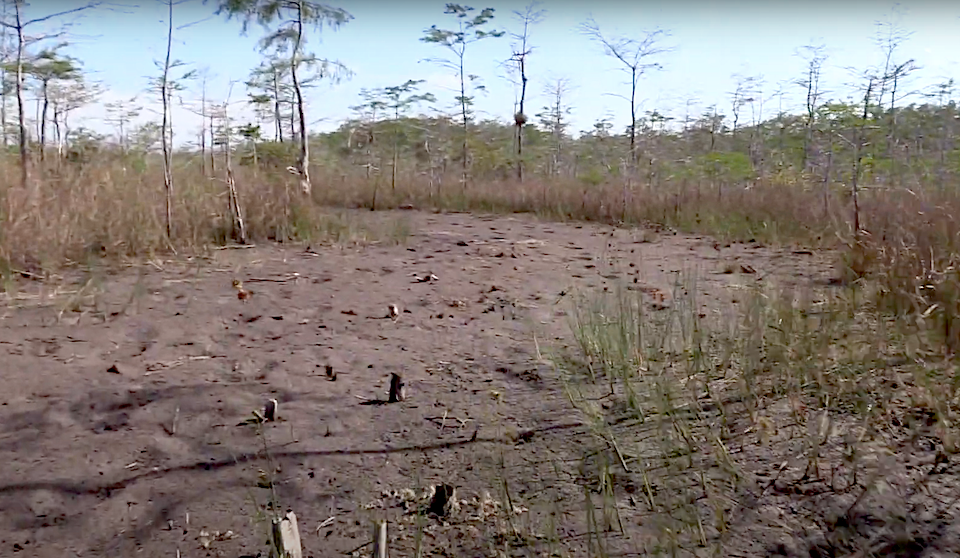
Soils in Big Cypress National Preserve impacted by oil exploration work in 2017 and 2018 are struggling to recover/Kurt Repanshek
Four conservation groups want the U.S. Army Corps of Engineers to explain why it rescinded a finding that an oil company's exploration work had damaged Big Cypress National Preserve, and that it require the company obtain a permit for any future exploration.
The request follows the Corps' unexpected reversal from a March 6 finding that Burnett Oil Co.'s seismic work had "caused an identifiable individual and cumulative adverse effect on aquatic function, and that the survey had the adverse effect of degrading a water of the U.S."
Last week Col. Andrew D. Kelly, Jr., commander of the Corps' Jacksonville, Florida, District, reversed that position, writing Burnett Oil President Charles Nagel to say that after talking with Big Cypress staff he was rescinding "the conclusions specified in the previous letter and asserts no further action is being taken by Jacksonville District or required of Burnett for its completed seismic survey."
On Tuesday, a spokesman for the Corps told Traveler in an email that it hadn't found any "clear evidence" of adverse impacts from Burnett Oil's exploratory work. Traveler shared with the spokesman videos it had taken in Big Cypress on March 6 that appeared to show significant impacts and asked for reaction to what the videos showed. There was no immediate response.
On Wednesday, Traveler reached out to Big Cypress Superintendent Thomas Forsythe via email seeking details on the Park Service's talks with the Army Corps, but did not immediately receive a response. The request also inquired whether Burnett Oil had plans to return to the preserve to repair the ruts its vibroseis trucks had left.
Those trucks, which can weigh up to 60,000 pounds, are used to shake the earth to generate ground-penetrating seismic waves, which then are picked up by small instruments called “geophones.” Geologists use the waves to create three-dimensional maps of the underlying ground.
When the Park Service in 2016 granted Burnett Oil its exploration permit, it set down 47 requirements that the company would have to adhere to. One was that ruts, depressions, and vehicle tracks resulting from field operations be restored to original contour conditions concurrent with daily operations using shovels and rakes to prevent the creation of new trails.
Another was that field reclamation of impacts would begin immediately as the survey continued. Soils were to be decompacted and returned to match the original grade. If the Park Service later determined that revegetation of the disturbed areas was necessary, then the areas would be identified and Burnett Oil would have to plant native species in a specific pattern, species composition, and density as defined by the Park Service.
The conservation groups -- the Natural Resources Defense Council, Center for Biological Diversity, Conservancy of Southwest Florida, and the National Parks Conservation Association -- wrote Col. Kelly on Wednesday asking for a meeting with him and his staff "to obtain clarification on the decision to rescind the finding that the seismic testing is a regulated activity under the Clean Water Act."
Specifically, the groups want to see the information the Corps relied on in deciding to rescind the earlier notice.
In the letter (attached below) sent by NRDC Senior Attorney Alison Kelly, the groups pointed out that they had "extensively documented the existing wetland damage, and maintain that the Burnett Oil Company’s seismic activities should have been authorized" under pertinent permits.
They also inquired whether Burnett Oil had indicated whether it would conduct any further exploration in Big Cypress.



Add comment